The lungs are the third most vital organ in the body, after the brain and the heart.
The lungs are responsible for absorbing the oxygen in the air that we breathe into the bloodstream and for expelling the waste gas (carbon dioxide) produced in every cell in the body. This vital process is called gas exchange, which is critical for the survival and healthy function of our body. In addition to gas exchange, the lungs also perform the following important functions:
pH Balance: If our lungs detect a rise in acidity, they increase the rate of ventilation to expel more carbon dioxide. This process causes the body to become less acidic.
Filtering: Our lungs filter small blood clots and they are able to remove small air bubbles, known as air embolisms, if they occur.
Protective: Our lungs act as a shock absorber for our heart in certain types of collisions.
Protection from Infection: Certain membranes within our lungs secrete immunoglobulin A, which protects our body against some infections.
Mucociliary Escalator: The mucus that lines the respiratory passages traps dust particles and bacteria. Tiny, hair-like projections, known as cilia, move these particles upward like an escalator to a position where they can be coughed out or swallowed and destroyed by the digestive system.
Blood Reservoir: The amount of blood the lungs can contain varies from 500 to 1,000 millilitres (ml). This function can be useful, for example, during exercise. The lungs interact with the heart to accommodate sudden increases in blood flow and this can help the heart to function more efficiently.
Speech: Proper airflow is required when we speak.
Going Back to Basics
Our lungs, just like our heart, joints and other body parts, age with time. They can become less flexible and lose their strength, which can make it more difficult to breathe. However, by adopting certain healthy habits, we can better maintain the health of our lungs and keep them working optimally even into our senior years.
Maintaining the health of our lungs can be broken into 3 practical steps, which we should all incorporate into our daily lives:

-
Anti-inflammatory Diet
Inflammation is often characterised by redness, warmth, swelling, and sometimes pain and some immobility. It is part of our immune system’s natural response to heal an injury or fight an infection. It should stop after the healing process is complete.
However, when inflammation persists or serves no purpose, it damages the body and causes illness. This is called chronic inflammation, which is the root cause of many chronic diseases, including respiratory illnesses such as asthma and bronchitis.
Stress, lack of exercise and exposure to toxins can all contribute to such chronic inflammation, but diet plays a big role as well.
Some foods can trigger inflammation which can negatively affect the health of our lungs, while some foods reduce inflammation and promote healing in the body.
By learning how specific foods and supplements promote anti-inflammatory action and restore health at a cellular level, you can begin to rejuvenate and strengthen your lungs (and the rest of your organs).
-
Fruit & Vegetables
Fruit and dark leafy greens are rich in antioxidants as well as anti-inflammatory flavonoids that restore cellular health. They protect the lungs from free radical damage that causes inflammation.
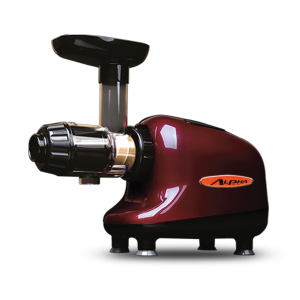
If you struggle to consume whole portions of green leafy vegetables, simply juice them with NewLife™ Alpha Juicer. They can be juiced with fresh fruit such as oranges or pineapples to make them more palatable.

Alternatively, NewLife™ Super Green Food ++ and Spirulina are excellent supplements to get more greens into your diet. They are concentrated sources of vitamins, minerals, phytonutrients, amino acids, enzymes, chlorophyll and powerful antioxidants.
-
Coenzyme Q10
Coenzyme Q10, or CoQ10 for short, is a vitamin-like compound that is produced by the body. It is stored in the mitochondria of cells and is responsible for energy production at the cellular level as well as protecting cells from bacteria, viruses and oxidative stress (free radical damage). Clinical evidence suggests that CoQ10 has potent effects on inflammatory markers.
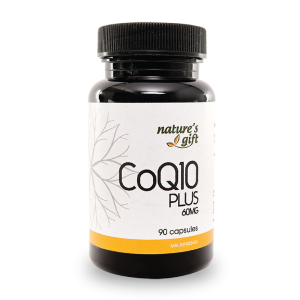 CoQ10 is found in meat, fish and whole grains. However, the amount of CoQ10 found in these dietary sources is not sufficient to significantly increase CoQ10 levels in the body. Besides, CoQ10 levels in the body also decrease as we age.
CoQ10 is found in meat, fish and whole grains. However, the amount of CoQ10 found in these dietary sources is not sufficient to significantly increase CoQ10 levels in the body. Besides, CoQ10 levels in the body also decrease as we age.
Hence, taking a CoQ10 supplement is essential. NewLife™ CoQ10 Plus is an advanced formula, synergistically blended with essential fatty acids found in flax seed concentrate to enhance bioavailability.
-
Astaxanthin
This is the most powerful antioxidant in the world. While other antioxidants can only handle one free radical at a time, astaxanthin forms an electron cloud around itself, which sucks in free radicals and can neutralize up to 19 free radicals at one time.
You can get astaxanthin by eating pink sea creatures that feed on algae. Sockeye salmon is by far the richest source. Just make sure that it is wild-caught.
You can also take astaxanthin supplements, at least 10 mg per day. Take it with a meal containing healthy fats like butter, coconut oil or eggs. The fat will help your body to absorb the astaxanthin.

NewLife™ Collasta contains a generous amount of astaxanthin extracted from red algae as well as other ingredients such as hydrolysed marine collagen, grapeseed extract, green tea extract, pine bark extract, lycopene and mangosteen extract.
-
Garlic
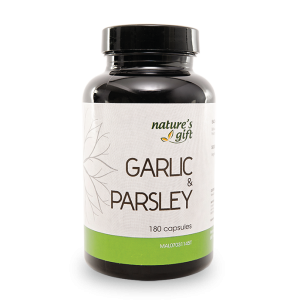 This pungent vegetable is considered as one of the anti-inflammatory superstars. Organosulfur compounds derived from garlic may lower the production of substances in the blood that cause inflammation. In fact, a 7-year study conducted by the Jiangsu Provincial Center for Disease Control and Prevention in China found that people who ate raw garlic at least twice a week had 44% lower risk of developing lung cancer. If eating raw garlic is not your thing, take NewLife™ Garlic & Parsley as a daily supplement and immune booster instead!
This pungent vegetable is considered as one of the anti-inflammatory superstars. Organosulfur compounds derived from garlic may lower the production of substances in the blood that cause inflammation. In fact, a 7-year study conducted by the Jiangsu Provincial Center for Disease Control and Prevention in China found that people who ate raw garlic at least twice a week had 44% lower risk of developing lung cancer. If eating raw garlic is not your thing, take NewLife™ Garlic & Parsley as a daily supplement and immune booster instead!
-
Omega-3 Fatty Acids
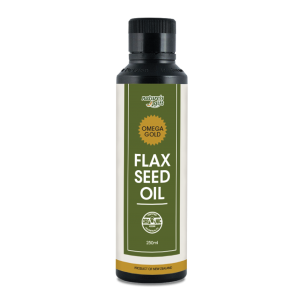 While the human body needs only about 2 to 4 times more Omega-6 (pro-inflammatory) than Omega-3 (anti-inflammatory) fatty acids, our daily diet tends to contain an excessive amount of Omega-6 fatty acids from all the vegetable oils that are commonly used for cooking or found in processed foods – about 14 to 25 times more! In other words, our body is oversupplied with Omega-6 and deficient in Omega-3. Health experts believe that this imbalance has contributed to the rising rate of inflammatory disorders and other related health conditions. To correct this imbalance, we need to consume more Omega-3 while reducing Omega-6.
While the human body needs only about 2 to 4 times more Omega-6 (pro-inflammatory) than Omega-3 (anti-inflammatory) fatty acids, our daily diet tends to contain an excessive amount of Omega-6 fatty acids from all the vegetable oils that are commonly used for cooking or found in processed foods – about 14 to 25 times more! In other words, our body is oversupplied with Omega-6 and deficient in Omega-3. Health experts believe that this imbalance has contributed to the rising rate of inflammatory disorders and other related health conditions. To correct this imbalance, we need to consume more Omega-3 while reducing Omega-6.
Low Omega-3 level reduces cell membrane permeability, causing inefficient transport of oxygen and nutrients to the cells, which consequently leads to the degeneration of cells and other health problems. Omega-3 is essential for maintaining healthy heart function, immune function, brain function and the nervous system.
Flax seed oil is one of the best sources of natural Omega-3. Most people suffer from a deficiency of the Essential Fatty Acids (EFAs) contained in flax seed oil. EFAs are necessary fats that humans cannot synthesize, and must be obtained through diet. EFAs support the cardiovascular, reproductive, immune and nervous systems.
NewLife™ Omega Gold Flax Seed Oil assures the highest quality oil, which is extracted from organically grown golden flax seeds, using a cold-press process which eliminates the damaging effects of light, oxygen and heat.
-
Coconut Oil
 In many recent studies, the lauric acid in virgin coconut oil was found to reduce inflammation in cells. It works both as an analgesic and an anti-inflammatory.
In many recent studies, the lauric acid in virgin coconut oil was found to reduce inflammation in cells. It works both as an analgesic and an anti-inflammatory.
One to two spoonfuls of extra virgin coconut oil a day goes a long way. NewLife™ Extra Virgin Coconut Oil is certified organic, cold pressed and naturally extracted from freshly harvested mature coconuts.
-
Reduce Salt (Sodium) Intake
Balance is the key to a healthy body free of inflammation. A good example of mineral balance tied to inflammation is the proper mix of sodium-rich foods and potassium-rich foods. Sodium brings in fluid and nutrients, while potassium flushes toxins. A high sodium (high salt) diet can tip this delicate balance. Without this balance, toxins can build up in the body and promote inflammation.
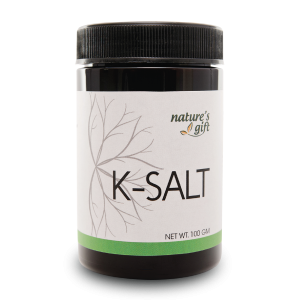 Health experts recommend an intake of at least 5 times more potassium than sodium. To reconstruct healthy cells, we must replenish potassium levels in the body. Besides cutting down salt intake and taking more high potassium foods, supplementing with natural, special formulated potassium such as NewLife™ K-Salt is the perfect antidote for poor health. K-Salt is also particularly helpful for those with cough and phlegm, which can cause discomfort or strain the lungs in some cases.
Health experts recommend an intake of at least 5 times more potassium than sodium. To reconstruct healthy cells, we must replenish potassium levels in the body. Besides cutting down salt intake and taking more high potassium foods, supplementing with natural, special formulated potassium such as NewLife™ K-Salt is the perfect antidote for poor health. K-Salt is also particularly helpful for those with cough and phlegm, which can cause discomfort or strain the lungs in some cases.
Inflammation-causing Offenders
Once you find foods that heal your body and satisfy your palate, you can then remove those inflammation-causing offenders without feeling deprived.
Below are some of the common culprits that raise inflammation. If you are constantly consuming these foods, your body will gradually transition into a state of chronic inflammation. So, watch out and stay away from:
- fried foods
- refined flours
- refined sugars
- hormone- and antibiotic-laden animal products
- synthetic sweeteners
- artificial food additives
- oxidized cholesterol (cholesterol that has gone rancid, such as that from overcooked food)
- foods cooked at high temperatures, especially if cooked with vegetable oil (such as peanut, corn or soy)
- trans fat: margarine, vegetable shortening and all products listing them as ingredients or made with partially hydrogenated oils of any kind.
In a nutshell, every bite counts. Start moving towards an anti- inflammatory diet today!

-
Breathe in, Breathe out
Lung exercises provide ways to help your lungs become more efficient at managing airflow and oxygen levels.
Pursed-lip breathing forces the airways to stay open longer when you exhale so stale air can be expelled and more fresh air can be absorbed.
Pursed-lip breathing lung exercises are easy to do and can be done anywhere at any time. The exercise involves inhaling, slowly, through the nose and exhaling through pursed lips. The goal is to take twice as long breathing out as breathing in, so if you inhale for five seconds, you will want to exhale for 10 seconds while doing this exercise.
It may take some time before the technique feels natural, but with regular practice, it can become comfortable. Even a 5 to 10 minutes’ practice every day can be beneficial.

-
Walking on Sunshine
Several studies have shown that vitamin D levels in the blood significantly impact lung health. It also plays a key role in balancing the immune system, reducing chronic inflammation, and supporting muscle health—all of which support respiratory health.
The cheapest and best source of vitamin D is sunshine. We are extremely fortunate to live in tropical countries in South East Asia where we have access to the sun almost every day of the year.
When your skin is exposed to sunlight, the sun’s ultraviolet B (UVB) rays hit cholesterol in the skin cells, providing the energy for vitamin D synthesis to occur.
It is important to note that the sun’s UVB rays cannot penetrate through windows. Hence the ONLY way to obtain enough UVB is to spend time outdoors when the sun is shining.
In most situations, approximately 30 minutes of skin exposure (without sunscreen) of the arms and face to sunlight can provide all the daily vitamin D that the body requires.
We may not think about the importance of lung health until we experience a breathing problem. When our lung health is affected, it can impact the quality of everyday life and can prematurely shorten our lifespan. Take care of them starting today!

